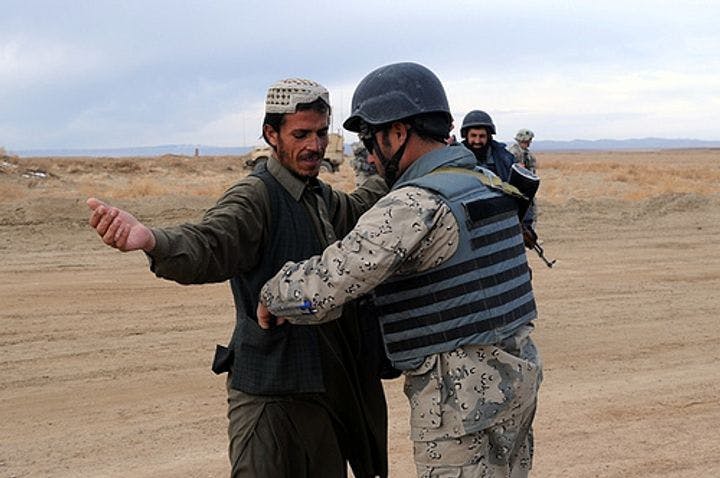Winter 2012
Checkpoints, Not Checks
– The Wilson Quarterly
There's little actual evidence to back claims that employment will make insurgency less likely.
In the 1960s, criminologists developed the theory that employed men are less likely to commit crimes because they are meaningfully occupied. The logic eventually migrated to conflict zones: Unemployed men with lots of time on their hands have the opportunity and motivation to participate in political violence, the thinking went. Put these men to work and insurgent violence will decrease. Job creation programs led by aid and development organizations have sprouted up around the world in order to put this wisdom into action.
But these efforts may be for naught, according to economists Eli Berman and Michael Callen of the University of California, San Diego; Colonel Joseph H. Felter, a research fellow at the Hoover Institution; and political scientist Jacob N. Shapiro of Princeton. They studied the relationship between unemployment and insurgent activity in Afghanistan, Iraq, and the Philippines during discrete periods over roughly the past decade. Their findings: Higher unemployment rates correlated with less political violence overall. In Iraq, for example, a 10 percent increase in the unemployment rate dovetailed with 0.74 fewer acts of insurgent activity per 1,000 people.
How could this be? Berman and his colleagues offer several explanations. One is that insurgents are prompted to act when the economy is doing well, because the resources and land that insurgents want to seize are more valuable. Another theory posits that when unemployment is high, governments find more willing sellers of intelligence about insurgency efforts. Still another theory asserts a different kind of causality: The checkpoints and other security measures that suppress insurgent violence also hamper local economies, driving up unemployment.
The authors caution that unemployed men may still be drawn to insurgent activity—it’s just that this correlation is “overshadowed by other forces.” Still, if aid and development groups truly want to dampen insurgent violence, they may be better off pouring their money into programs that enhance civilian cooperation with counterterrorism efforts than ones that focus on putting the unemployed back to work.
* * *
The Source: "Do Working Men Rebel? Insurgency and Unemployment in Afghanistan, Iraq, and the Philippines" by Eli Berman, Michael Callen, Joseph H. Felter, and Jacob N. Shapiro, in Journal of Conflict Resolution, August 2011.
Photo courtesy of Flickr/ResoluteSupportMedia
Up next in this issue
